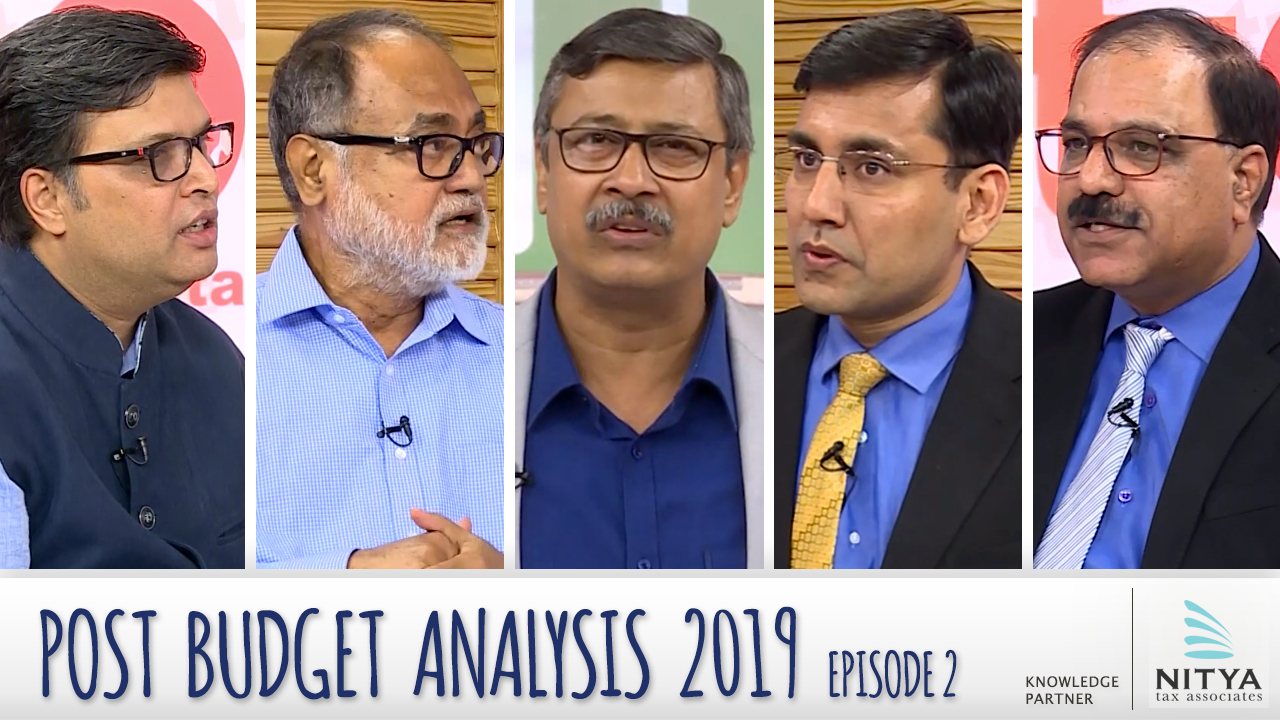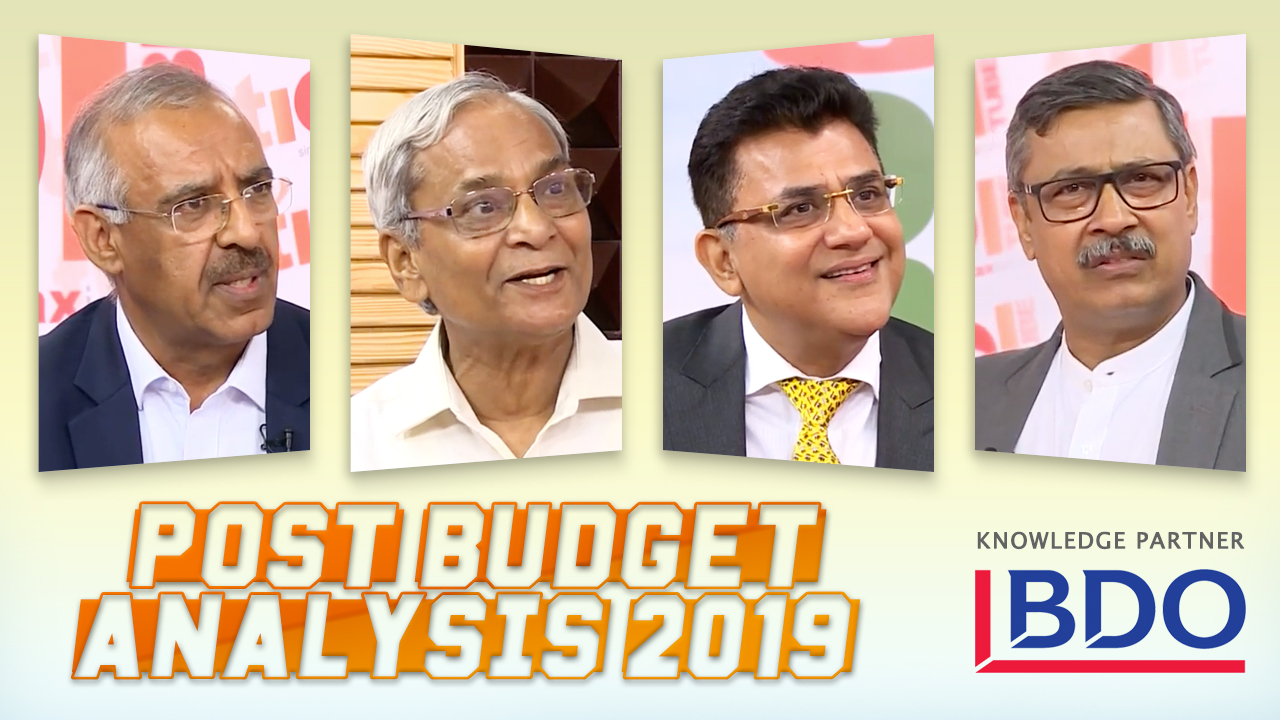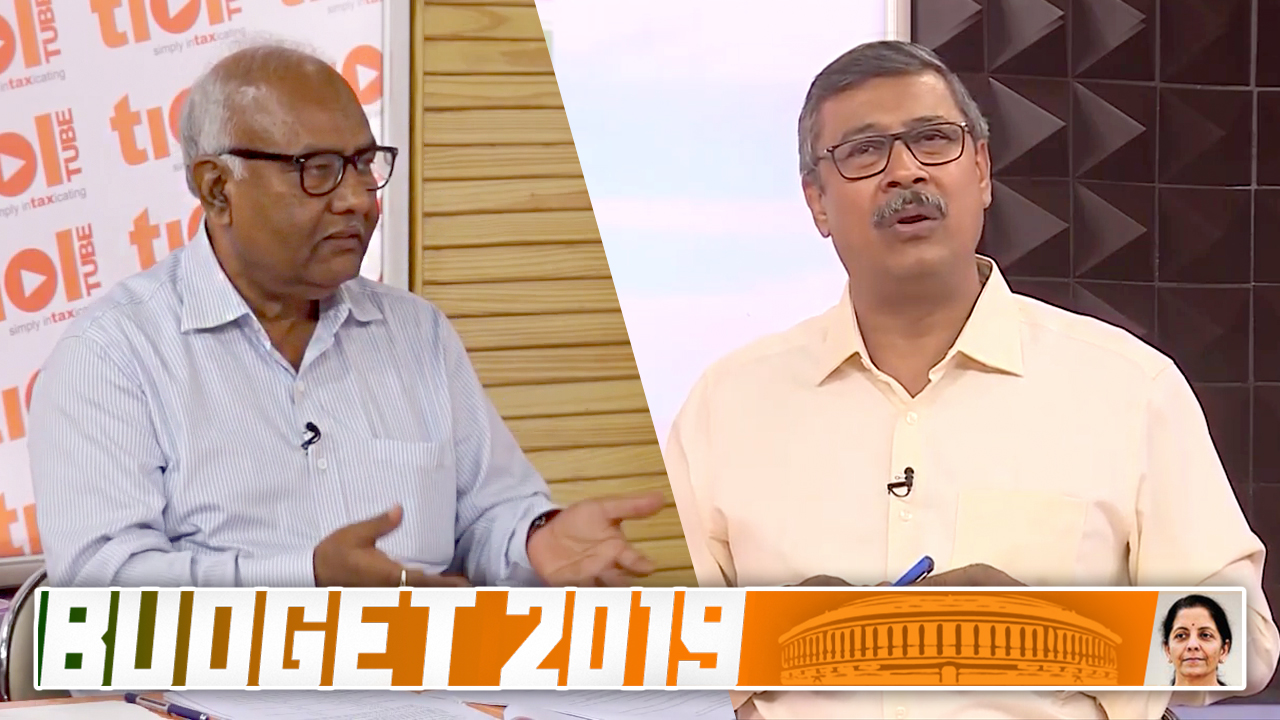|
SERVICE TAX
2019-TIOL-1562-HC-MUM-ST
CCT & CE Vs PN Writer And Company Pvt Ltd
ST - Condonation of Delay application filed by Revenue for seeking condonation of 67 days in filing the appeal was dismissed by the CESTAT on the ground that no sufficient cause has been shown, as required in terms of s.86(5) of the FA, 1994 - Revenue in appeal before the High Court.
Held: Statute provides a specific time period for filing an appeal - The parties governed by the Act and Finance Act are required to adhere to the time line for filing an appeal to the Tribunal under the Acts - However, the Act itself empowers the Tribunal to condone delay in filing an appeal, if sufficient cause is shown for the same - The words 'sufficient cause' would mean the cause/ reason for the delay is bona fide and does not suffer from negligence - In this case, as noted by the Tribunal in the impugned order, no sufficient cause has been shown by the Commissioner - In fact, the application as originally filed for condonation of delay merely stated that there is a __ (Blank) days of delay in filing the appeal and that this delay is not on account of negligence on the part of the Department - This shows the casual manner in which the Revenue had first filed its application for condonation of delay - Even when time was given to the Revenue to file an affidavit to explain the delay, the affidavit as filed states that the delay was on account of restructuring of the Department due to the introduction of the GST - This, the Tribunal correctly noticed had happened on 1st July, 2017 while the order from which the delay in filing the appeal is to be considered is dated 23rd August, 2018 (Received by the Commissioner on 24th August, 2018) - It was over a year after introduction of GST and yet the Revenue claims to be hampered in discharging its duties under the Act and Finance Act - In the absence of any acceptable / believable reason for not filing an appeal, no fault can be found with the impugned order of the Tribunal, in holding that the reason given for the delay as sufficient cause, namely, the introduction of GST, is on the face of it is unacceptable as the orders in question were all passed much after the introduction of GST - The occasion to adopt a liberal approach in matters of condondonation of delay would only arise if some cause is made out for the delay - View taken by the Tribunal cannot be said to be perverse - Appeal dismissed: High Court [para 7 to 9]
- Appeal dismissed: BOMBAY HIGH COURT
2019-TIOL-2072-CESTAT-DEL
Radhey Shyam Agarwal Vs CCE
ST - The assessee has rented their premises for use of Axis Bank and were receiving rent for the same - The activity of renting of immovable property became a taxable service w.e.f. 01.06.2007 under Section 65(105) (zzzz) - For the rent received by assessee from the Axis Bank, the Department issued SCN demanding Service Tax for the rent received for the period 01.06.2007 to 31.12.2013 alongwith interest and penalty - The only contention is the benefit of Notfn 6/2005-ST may be extended - This Notfn exempts the payments of Service Tax in respect of taxable service upto the initial aggregate value of Rs.8 Lakhs - The Notfn is also subject to conditions including the condition that the aggregate value of taxable services rendered by a provider of taxable service does not exceed Rs.4.00 Lakhs/Rs.8.00 Lakhs in the preceding financial year - Since the renting became taxable service only w.e.f. 01.06.2007, the rent received by assessee in the year 2006-07 cannot be considered as receipt of consideration for taxable service - Hence, even if such amount received is more than Rs.4.00 Lakhs/8.00 Lakhs in 2006-07, the benefit of Notfn 6/2005 for the period 2007-08 cannot be denied to the assessee - The assessee has rightly claimed the benefit of exemption for the initial aggregate value of taxable service amounting to Rs.8.00 Lakhs - Such benefit claim is an order and the same is allowed - The Service Tax payable by availing the benefit of threshold exemption has also been discharged by assessee alongwith interest - Same is upheld since it has not been disputed - The assessee is entitled for waiver of penalty under Section 80 of the Act - In the result, the demand for Service Tax is restricted to the amount already paid by assessee alongwith interest - Penalty imposed under various Sections is waived in terms of Section 80: CESTAT
- Appeal partly allowed: DELHI CESTAT
2019-TIOL-2071-CESTAT-AHM
Polycoates Vs CCE & ST
ST - The assessee have admittedly provided the service of sand blasting and painting of existing building plant and machinery equipment which does not fall under sub clause (c) of Clause 25(b) of Section 65(105) as completion and finishing service - Since, the assessee have carried out this activity on existing building it correctly covered under the sub Clause (d) of Clause 25(b) Section 65 (105) however, the assessee strongly submitted that their service fall under the category of works contract service as they have provided the service with material and also paid the works contract tax - On this count, lower authority have not given the conclusive finding whether the service falls under works contract or otherwise - To qualify the service as works contract certain factual aspect has to be ascertained such as the service was provided with material and the service provider is paying the WCT only thereafter it can be decided whether the service is of works contract or otherwise - Therefore, in absence of any finding on works contract, matter remanded to the adjudicating authority to pass a fresh order on merit - The assessee was fastened penalties under Section 76 & 78 - Though, Tribunal is not expressing any views that whether penalty under Section 78 should be maintained or otherwise but on the legal issue as held by Gujarat High Court in case of Raval Trading Companies - 2016-TIOL-112-HC-AHM-ST , the penalty under both the Sections 76 & 78 cannot be imposed simultaneously - Therefore only for this portion, the penalty imposed under Section 76 is set aside, remaining matter is kept open and to be decided afresh: CESTAT
- Matter remanded: AHMEDABAD CESTAT
CENTRAL EXCISE
2019-TIOL-2070-CESTAT-AHM
Neepa Trading Company Vs CCE
CX - Three issues involved in the present case - As regard the credit in terms of notfn 40/2003-CE (NT) the only lapse on the part of assessee was that they have not given intimation as there is no change of stock as on 01/04/2003 - However, they had filed declaration for the stock as on 31/03/2003 - Since, in their reply they had stated that there is no change in the stock, the same may be considered as intimation, as there is no time period stipulated for such intimation - Hence, only for non filling of intimation which is of procedural nature, credit should not be denied - Accordingly, the credit with reference to notfn 40/2003-CE (NT) is admissible to assessee - As regard the issue that the assessee has availed the credit on goods which have not undergone the manufacturing activity, since the assessee have cleared the same goods on payment of duty, CENVAT credit is admissible in terms of Rule 16 of CER, 2002 and the demand on this ground is also set aside - As regard the demand confirmed denying benefit under notfn 38/03-CE, the Commissioner (A) has already considered and set aside the major demand on filing of 13 invoices by the assessee - However, for the remaining amount, assessee failed to produce any invoices - In absence of invoices, it cannot be ascertained that the goods cleared is covered by notfn 38/03-CE - Therefore, the demand of Rs.23,608/- is upheld - As regard penalty, since the major demand is set aside and the demand which was confirmed also relates to the applicability of the notification, no malafide found on the part of assessee, hence, the penalty imposed by lower authority is also set aside: CESTAT
- Appeal partly allowed: AHMEDABAD CESTAT
2019-TIOL-2069-CESTAT-BANG
Mukund Ltd Vs CCT & CE
CX - The assessee is engaged in manufacture of steel blooms and billets and are availing facilities of CENVAT credit under CCR, 2004 - They placed purchase order on M/s. Simech Engineers Pvt. Ltd. for erection, commissioning and installation of Sinter Plant - The audit was conducted and audit report was prepared on 17/05/2012 and as per the audit report, the input service relates to industrial construction service and ineligible for credit - Assessee filed the detailed reply to the audit report explaining the nature of work executed by service provider M/s. Simech Engineers Pvt. Ltd. and also showed the purchase order and the invoices - In the annexure to SCN also, the demand was proposed for the service of fabrication and erection jobs of 33 sqm circular Sinter plant - Assessee has furnished invoices connected with site preparation, development work, civil construction service, dismantling work, fixing of roofing sheets in connection with the setting up of Sinter plant on which no CENVAT credit was taken but the same was not considered by audit party and by Department before issuing the SCN - The description of work as per the purchase order clearly states that it is work order for mechanical work at Sinter Plant - The service provider had admittedly paid service tax under category of erection, commissioning and installation of equipment or machinery and assessee has taken the credit under the concerned category - In view of settled legal position that the authorities having jurisdiction over the recipient of inputs and inputs services cannot determine the classification and value of the services and the decisions relied upon by assessee on this issue is clearly in favour of assessee - The nature of service involved in present case clearly falls within the definition of input service and has not been excluded from the amendment to the definition of input service - The SCN which was issued was also barred by limitation because the period involved is from September 2011 to August 2012 and audit report was submitted on 17/05/2012 and the SCN was issued on the basis of observation in the audit report - When the entire details regarding the transaction was recorded in the books of accounts, there cannot be any allegation of suppression of facts and further the same was verified by audit party - Therefore invoking of longer period of limitation is not tenable under law - Further, the entire details of transactions were in the knowledge of Department and therefore suppression of facts with intent to evade payment of duty cannot be alleged against assessee - The impugned order is not sustainable in law as well as the limitation: CESTAT
- Appeal allowed: BANGALORE CESTAT
2019-TIOL-2068-CESTAT-KOL
Murlidhar Ratanlal Exports Vs Commissioner of CGST
CX - The assessee is engaged in manufacture of various types and specifications of Jute Yarn/Twine, Jute Sacking Fabrics, Jute Hessian Fabrics and Jute Sacking Bags for selling the same both in domestic as well as foreign market on payment of duty i.e. Jute Manufactures Cess - SCN was issued for non-payment of jute cess leviable under Section 3 of Jute Manufactures Cess Act, 1983 - The copies of the invoices are made part of Cost Accountant's certificate and the same were also filed before the lower appellate authority - The Allahabad High Court in case of Accurate Chemical Industries on an identical situation dismissed the appeal filed by Revenue - This Tribunal in case of Tinplate Company of India Ltd. - 2010-TIOL-1135-CESTAT-KOL held that the assessee filed the monthly returns regularly showing clearances of impugned goods and therefore the department cannot allege suppression of facts with intent to evade duty and extended period of limitation cannot be invoked - The impugned orders are set aside: CESTAT
- Appeal allowed: KOLKATA CESTAT
CUSTOMS
2019-TIOL-1565-HC-MAD-CUS
Ringo Cargo Care Vs CC
Cus - It is the case of the respondent that the consignment of 100% poly knitted boys jacket (fancy) appears to be of inferior quality and did not appear to be of value that was declared - To be noted, the exporter and obviously, the writ petitioner in the capacity of Customs Broker of the exporter had declared the value at US$ 6 Dollars per piece - it is the case of the respondent that consignment was over invoiced - market enquiry was made in this regard and an order came to be passed - it is the case of the petitioner Customs Broker that they were not given notice under Section 124 of the Customs Act before the order was passed imposing penalty etc.
Held: A perusal of the impugned order reveals that a personal hearing had been held and writ petitioner's Assistant Manager participated in the personal hearing - However, it cannot be gainsaid that this alone satisfies the Natural Justice Principles (NJP) owing to the language in which Section 124 of said Act, more particularly, Sub-clauses (a) & (b) therein are couched - considering facts of this case, this Court is left with the considered view that personal hearing alone does not satisfy NJP in the instant case as the noticee should be informed about the grounds on which the penalty is proposed to be imposed so that there can be effective representation by noticee - respondent shall issue a notice under Section 124 of said Act to the writ petitioner within a period of fortnight - In this notice as mandated under Section 124(a) of the Act, the grounds on which the penalty is proposed to be imposed shall be set out besides other necessary particulars - reply to be filed by petitioner within a fortnight and order to be passed afresh by the respondent in the matter of the Customs Broker after granting a personal hearing - as the exporter has not chosen to assail the impugned order, same is not interfered with and it will continue to operate - writ petition disposed of: High Court [para 14, 15, 17, 18, 19]
- Petition disposed of: MADRAS HIGH COURT
2019-TIOL-2067-CESTAT-KOL
CC Vs Kiran Sanitaryware Pvt Ltd
Cus - The order dated 11/11/2016 was communicated on 15/11/2016 and reviewed by Commr. of Customs (Port) on 10/2/2017 under Section 129D of the Customs act, 1962 which is well within the prescribed time limit - Since the Commr. (A) has not decided the appeal on merit but has rejected the same as time barred, it would be appropriate to remand the appeal back to the Commr. (A) to decide the appeal on merit in accordance with law - The appeal is allowed by way of remand to the Commr. (A): CESTAT
- Stay petition disposed of: KOLKATA CESTAT |







